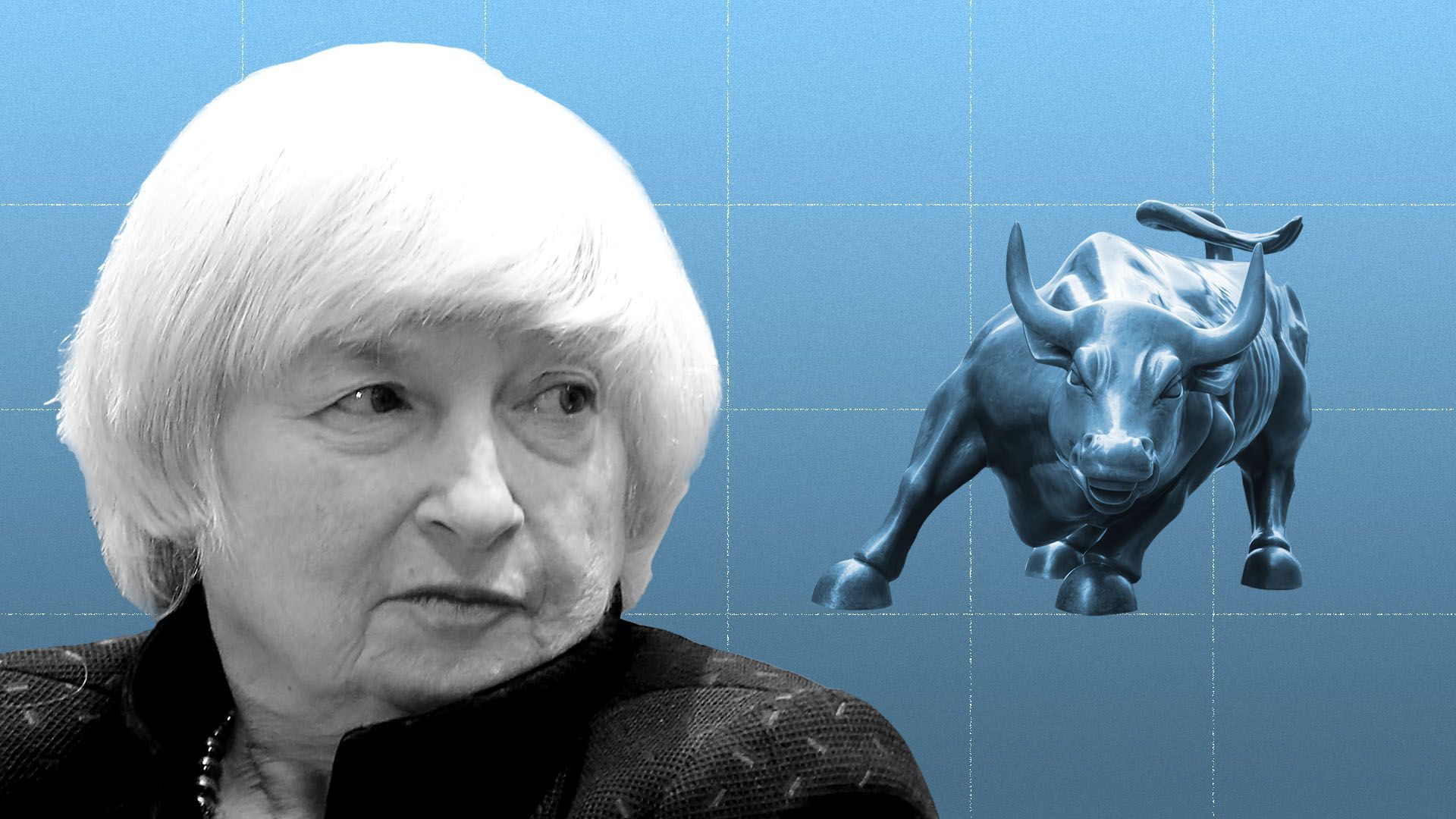| A face familiar to Wall Street is back as a central player that this time will need to steer the country out of a deep economic crisis. Driving the news: President-elect Joe Biden is preparing to nominate former Fed chair Janet Yellen to be Treasury secretary. - If she's confirmed (as widely expected), it'll be historic: Yellen will be the first woman in U.S. history to head up Treasury — and the first ever to have held three of the most powerful economic posts in government.
Why it matters: The Treasury secretary wields enormous power in policy on regulations, taxes and the broad economy. Their actions can either reassure and spook financial markets. (Remember Mnuchin's infamous call with the big banks?) - "Investors shouldn't worry that [Yellen] will make off-the-cuff remarks that will spur volatility. She's the ultimate steady hand," Ian Katz, a financial policy analyst at Capital Alpha Partners, said in a note.
- "While she isn't the kind of hands-off free-marketeer that investors would prefer if they had the choice, she isn't going to make markets nervous."
The big picture: Monetary policy has already played a big role in economic recovery efforts. The Fed is expected to continue to play an outsized part with Yellen at Treasury. What they're saying: "We can bake in that the Biden administration will drive a Fed-dominated agenda," David Wagner, an analyst at Aptus Capital Advisors, tells Axios. - "The government will continue to lean on [chair] Jerome Powell to support the market and act as a backstop since there is still plenty of skepticism on getting a stimulus deal done with the likelihood of a split Congress."
The big picture: Job number one is tackling the pandemic's blow to the economy as the resurgence of the coronavirus threatens a second downturn. Yellen's spate of interviews in recent months also points to how she could approach other priorities as Treasury secretary. Fed-Treasury relationship: "It would be wrong-minded for the Fed to spend all of its time worrying about how — in some future world, by doing what they were set up to do — they would lose some autonomy," Yellen said in a WSJ interview in April. Fiscal package: "This is not a good time to have fiscal policy switch from being accommodative to creating a drag. That's what happened [in the 2008 financial crisis], and it retarded the recovery," Yellen told the WSJ last month. Debt: "[O]ne day in the future ... after this is over and the economy is recovered, we'll have to deal with deficits and get them under control, but now is the time when I think it's not necessary to worry about it," Yellen said in testimony before Congress in July. U.S.-China trade: "I do think the United States has real issues in terms of its trade relations with China and many valid concerns that are certainly on the table for discussion," Yellen said in an interview alongside the World Bank's David Malpass. Climate change: "What I see is a growing recognition on both sides of the aisle that climate change is a very serious concern and that action needs to occur," Yellen, who's long-supported a carbon tax, told Reuters. Capitalism: "There really is a new kind of recognition that you've got a society where capitalism is beginning to run amok and needs to be readjusted in order to make sure that what we're doing is sustainable and the benefits of growth are widely shared in ways they haven't been," she said to Reuters. | 







No comments:
Post a Comment